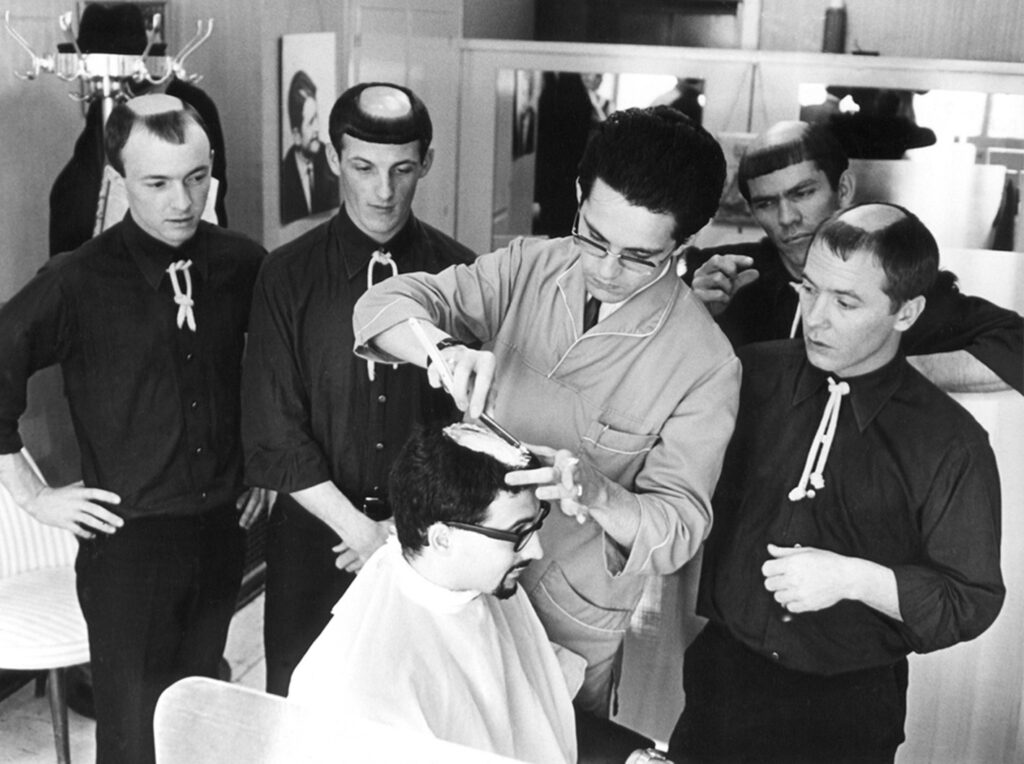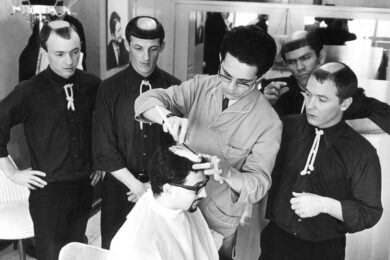Nobody got it, at the time. Amid Beatlemania, The Monks offered the world a clairvoyant glimpse of punk and krautrock with rhythm-driven and brutally minimalist rock that confined melody to backing vocals. Even less mainstream was their image: tonsures, black uniforms, nooses worn as ties. Decades would pass before this became palatable.
The Transatlantic Feedback includes footage from a gig the reformed Monks played in New York in 1999 to culminate a decade in which they were awarded an overdue reappraisal. It also tells the fascinating story of the band’s brief 60s career. Rock & roll clichés don’t get a look-in.
The starting gun was fired when a band called The 5 Torquays was formed in Germany by five American ex-servicemen. Like The Beatles, the Torquays played German dive bars every night of the week – with additional matinee shows on the weekend, naturally. But however tight they became, they lacked their own style until a couple of shadowy advertising executives entered the picture with heads full of design-school theory and a fervent desire to subvert.
Yes, The Monks didn’t have a Malcolm McLaren: they had two. As co-managers, Walther Niemann and Karl Remy gave the band not just their image but a manifesto that repudiated their past: "Never be a Torquay," it instructed them. Accordingly, their music became simple, repetitive and malevolent, with results captured by lone album Black Monk Time. When the management team broke up – with alcoholism a contributory factor – the Monks relaxed, grew their hair, sunbathed, got happy. It was over.
Documentary makers Lucía Palacios and Dietmar Post succeed in presenting the Monks as a band worth caring about, chiefly by including electrifying performance footage shot for German television in 1966. What’s striking is not just the band’s percussive might, but the facial expressions that animate singing guitarist Gary Burger as he plays: he winks, leers, sneers, stifles laughter, hams it up. Here is a dramatisation of the darkness and mischief for which the Monks found a place in pop music.
The film is in some ways clumsily assembled: it continually overlays text on still photographs, lacks narration, takes input from a slightly random selection of talking heads. But good instincts are at work as The Transatlantic Feedback homes in on instructive details highlighted: how army experiences shaped the Monks, the conflict they felt over singing anti-Vietnam lyrics, the hostility their music routinely faced. And crucially, there are interviews with all five band members.
Two of these men – drummer Roger Johnston and banjo player Dave Day – have since passed away, in 2004 and 2008 respectively. Briefly, they had lived in a world that finally got it.



